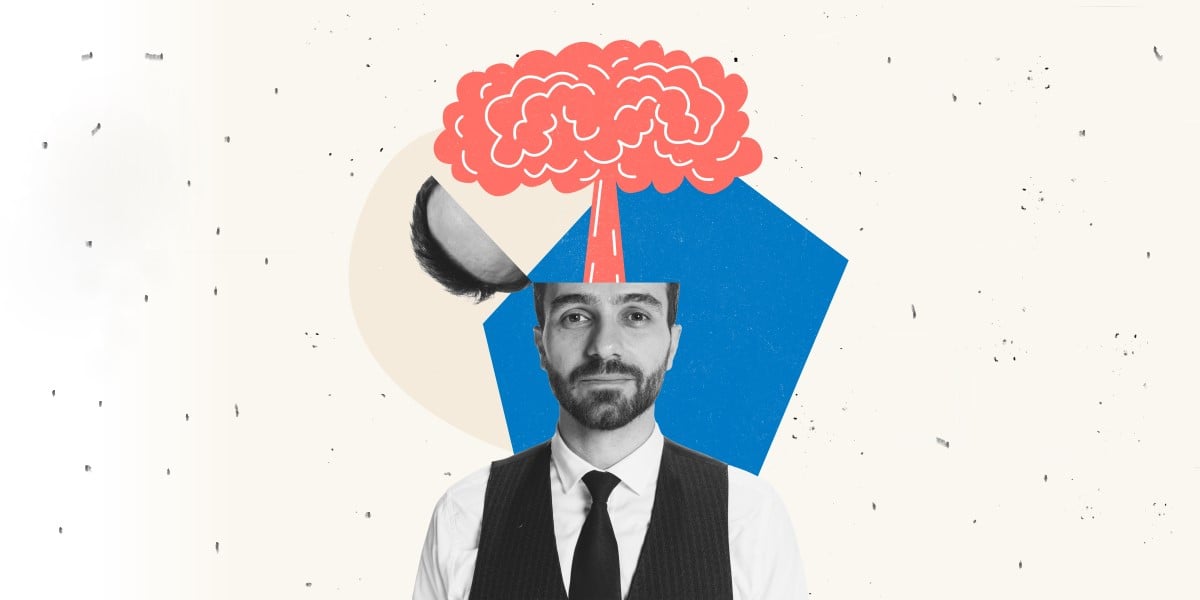#ai-assisted-coding
#ai-assisted-coding
[ follow ]
Information security
fromDevOps.com
1 week agoCheckmarx Extends Vulnerability Detection to AI Coding Tool from AWS - DevOps.com
Checkmarx Developer Assist integrates AWS Kiro to detect and eliminate most AI-generated vulnerabilities before code is committed, reducing security risks early in development.
fromFast Company
1 week ago5 reasons AI-assisted coding could break your business
AI is helping teams build software and tools faster than ever-but that doesn't mean we're building smarter. I've seen entire prototypes spin up in a day, thanks to AI coding assistants. But when you ask how they were built, or whether they're secure, you get a lot of blank stares. That's the gap emerging now, between what's possible with AI, and what's actually ready to scale.
Software development
fromBusiness Insider
1 week agoSpotify CEO says its top developers 'have not written a single line of code' in 2026
Spotify CEO Gustav Söderström said this week that some of the company's most senior developers haven't written any code in weeks - and that a positive development. "When I speak to my most senior engineers - the best developers we have - they actually say that they haven't written a single line of code since December," he said. "They actually only generate code and supervise it."
Artificial intelligence
fromEntrepreneur
2 weeks agoBuild Enterprise-Grade Applications for Just $50
Developers spend more than 60% of their time debugging and maintaining code rather than building new features, Stack Overflow's Developer Survey reports. If you're running a software development team or building applications for your business, you can use Microsoft Visual Studio Pro to streamline coding workflows with an AI-enhanced development environment that reduces debugging time and accelerates deployment cycles. Best of all, Microsoft Visual Studio Professional 2026 is currently available for only $49.99 (reg. $499.99).
Software development
fromMedium
3 weeks agoTwo Months of Vibe-Coding: Scala, Constraints, Trust and Shipping
If there's one thing I want you to take away from this article, it's this: testing harness is the most important thing for vibe-coding. Not prompt engineering, not fancy plugins, just constraining your AI outside AI toolchain. I'm calling it harness because it's not only tests. It's tests, types, linters, and any other automated checks you can put in place. The more you rely on AI, the more harness you need.
Software development
fromRealpython
3 weeks agoGetting Started With Google Gemini CLI - Real Python
This video course will teach you how to use Gemini CLI to bring Google's AI-powered coding assistance directly into your terminal. After you authenticate with your Google account, this tool will be ready to help you analyze code, identify bugs, and suggest fixes-all without leaving your familiar development environment. Imagine debugging code without switching between your console and browser, or picture getting instant explanations for unfamiliar projects.
Software development
fromMedium
3 weeks ago3 Practical Tips for Making Most of Claude for Coding UI Components
Claude is a very powerful AI tool that works especially well for coding. It's possible to code entire applications or services in Claude. That's why Claude quickly becomes a very important tool in a product designer's toolkit. It allows us to move quickly and build not only fast interactive prototypes, but also code UI components ready for implementation. To make this guide more specific, I will use Claude to code a sign-up web form.
Artificial intelligence
fromArs Technica
3 weeks agoDevelopers say AI coding tools work-and that's precisely what worries them
Software developers have spent the past two years watching AI coding tools evolve from advanced autocomplete into something that can, in some cases, build entire applications from a text prompt. Tools like Anthropic's Claude Code and OpenAI's Codex can now work on software projects for hours at a time, writing code, running tests, and, with human supervision, fixing bugs. OpenAI says it now uses Codex to build Codex itself, and the company recently published technical details about how the tool works under the hood.
Artificial intelligence
fromComputerWeekly.com
1 month agoBroken decryptor leaves Sicarii ransomware victims adrift | Computer Weekly
A coding error, possibly introduced thanks to over-reliance on artificial intelligence (AI) vibe coding tools, has rendered an emergent strain of ransomware an acutely dangerous threat, according to researchers at Halcyon's Ransomware Research Center (RRC). The Sicarii ransomware-as-a-service (RaaS) operation emerged from the cyber criminal underground in December 2025, when it started advertising for affiliates on the dark web.
Information security
fromReuven Lerner
1 month agoWe're all VCs now: The skills developers need in the AI era
When you're starting off, you solve problems with code. When you get more experienced, you solve problems with people. When you get even more experienced, you solve problems with money. In other words: You can be the person writing the code, and solving the problem directly. Or you can manage people, specifying what they should do. Or you can invest in teams, telling them about the problems you want to solve, but letting them set specific goals and managing the day-to-day work.
fromDesignlab
1 month agoLearn to Vibe Code | Vibe Coding Camp
AI-assisted coding is transforming how digital products get built. With the right tools, you can turn a static design into a functional prototype-complete with real data, interactions, and deployment-in a fraction of the time traditional development requires. Designers, PMs, and builders who understand this new workflow can experiment faster, collaborate more effectively with engineers, and bring ideas to life with unprecedented speed.In Vibe Coding Camp, you'll learn the modern AI-powered development stack-Cursor, GitHub, Vercel, Supabase, and Figma MCP-and use them together to build and ship a working web app from scratch.
Web development
fromZDNET
2 months agoYour programming career isn't over - AI just upgraded your toolbox
Demand for coders has collapsed. Up until this year, programming has been considered one of the most secure, predictable, and lucrative career options. But now, we're seeing reports that employment for programmers has collapsed to its lowest level since 1980. On the surface, the connection is obvious. AI agents are able to write code and do so much faster and cheaper than professional programmers. Code is structured text, something AIs are particularly well-suited to understand and reproduce.
Artificial intelligence
Artificial intelligence
fromBusiness Insider
2 months agoThrive Capital partner says he can't think of a single company he's invested in that laid off engineers because of AI tools
AI is augmenting engineering jobs rather than replacing them, increasing productivity without widespread engineer layoffs.
fromTheregister
3 months agoDoom hits KiCad as PCB traces become demons and doors
There's a certain delight to be had in doing something just to see if you can. Case in point: rendering Doom using PCB design software, or wading through the shores of Hell via the medium of an oscilloscope. Enter Mike Ayles, who pondered if it was possible to render Doom in vectors using KiCad. The answer? Of course it was. Doom can run on pretty much anything.
Gadgets
fromTheregister
3 months agoDevs gripe about having AI shoved down their throats
Some software developers complain that they're being required to use AI tools to the detriment of code quality and their own skills. A full-stack developer based in India, who identified himself to The Register but asked not to be named, explained that the financial software company where he's worked for the past few months has made a concerted effort to force developers to use AI coding tools while downsizing development staff.
Software development
fromZDNET
3 months agoGoogle's Antigravity puts coding productivity before AI hype - and the result is astonishing
Google today announced a new(ish) programmer's development environment called Antigravity. The company calls it "a new era in AI-assisted software development." And, from a first look I took at its functionality via this video, it well might be. At least for some things. Also: Google's Gemini 3 is finally here and it's smarter, faster, and free to access Some aspects of Antigravity are definitely astonishingly good. It has some features that I think can truly help move your agent-assisted programming forward in very productive ways.
Software development
fromInfoQ
3 months agoAnthropic Expands Claude Code to Web and Mobile Platforms
Anthropic has expanded the availability of Claude Code, its AI-powered development environment, bringing it to the web and mobile platforms. Previously limited to desktop access through Claude.ai and API integrations, the new rollout allows developers to run and manage coding tasks directly in a browser or on mobile devices. Claude Code is designed to help developers write, edit, and execute code across multiple files while maintaining conversational context. The web version introduces parallel job execution, allowing users to run several processes simultaneously.
Software development
fromTechCrunch
5 months agoHow Google's dev tools manager makes AI coding work | TechCrunch
One of the really interesting findings was the median date when developers started using AI tools. They found it was April 2024, which corresponds fairly neatly to Claude 3 coming out and Gemini 2.5 coming out. This is really the dawn of the reasoning or thinking models, and around that same time, we got much better at tool-calling. For coding tasks, you really need to be able to leverage external information in order to problem solve,
Artificial intelligence
fromThe Verge
5 months agoFigma made its design tools more accessible to AI agents
Figma is launching some new updates that allow AI models to directly communicate with its app-building tool and access designs remotely. Figma's Model Context Protocol (MCP) server - a bridge that enables AI models to tap directly into the code behind prototypes and designs created using Figma's tools - has now been expanded to support the design platform's AI prompt-to-app coding tool, Figma Make.
UX design
Artificial intelligence
fromFuturism
5 months agoProgrammers Using AI Create Way More Glaring Security Issues, Data Shows
AI-assisted coding increases security vulnerabilities dramatically despite reducing syntax and logic errors, causing large rises in privilege escalation and architectural design flaws.
fromLogRocket Blog
5 months agoAI coding tools still suck at context - here's how to work around it - LogRocket Blog
There is a plague in software development as of today, and it has become something we are gradually beginning to accept. It goes something like this: you're stuck on some code, so you deliver a code snippet to your favorite AI tool, hoping to debug it. You might get a solution, but then your AI tool introduces a new bug, which you suddenly have to spend time debugging.
Artificial intelligence
fromIT Pro
6 months ago74% of companies admit insecure code caused a security breach
Nearly three-quarters of organizations have suffered at least one security breach or incident in the last year that can be blamed on insecure coding practices. Analysis from SecureFlag found 74% of organizations have suffered an incident as a result of dodgy code, with nearly half of those hit by multiple breaches. The report comes as AI is beginning to take over some coding duties from developers. Debate remains over whether that code is secure.
Information security
fromTheregister
6 months agoAWS CEO says AI replacing junior staff is 'dumbest idea'
"How's that going to work when ten years in the future you have no one that has learned anything," he asked. "My view is you absolutely want to keep hiring kids out of college and teaching them the right ways to go build software and decompose problems and think about it, just as much as you ever have."
Artificial intelligence
[ Load more ]














